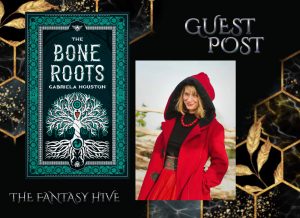My Top 7 Novels With Mothers at the Centre – GUEST POST by Gabriela Houston (THE BONE ROOTS)
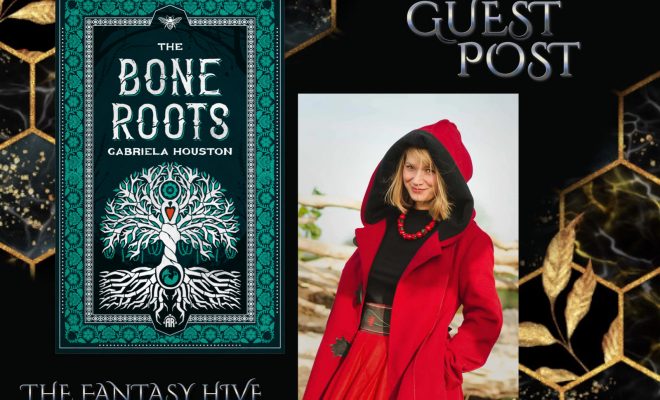
Today Gabriela Houston returns to the Hive to celebrate the publication of her latest novel The Bone Roots with a look at her favourite novels featuring mothers. Before we do, here’s a little more on The Bone Roots, and the connection to motherhood.
It’s been 40 years since the Fox took Kada’s brother. Though she ran and kept herself hidden, she fears it may be stalking her again, this time to steal her daughter.
Every year, Vedma Kada gives thanks to the bone roots – those that belong to the child-bearing tree who gave Kada her desperately-wanted baby, Secha. Kada lives her life in service of the bone roots and the goddess Zemya, but they cannot keep her daughter safe. Not when Secha’s emerging powers, both mysterious and brutish, threaten to out her for who she truly is…
Meanwhile Sladyana, a rich noblewoman, has spent the last fifteen years searching for her missing daughter, Luba. She was snatched from their home by the Fox thief and Sladyana has heard nothing from her since. But the one who gave Sladyana her daughter has come within her grasp once again, and so has the secret of her daughter’s fate.
File Under: Fantasy [ Tree of Life | Mother Issues | Out Foxed | Unravelling Secrets ]
The Bone Roots is out today from Angry Robot. You can order your copy on Bookshop.org
My top 7 novels with Mothers at the centre
by Gabriela Houston
Motherhood is often heavily controlled in both its cultural messaging and physical reality. As with most issues surrounding female agency, the role – and use – of an older woman is seen as limited to the care she can provide: the wedding, and occasionally the birthing of the royal baby, mark the end of the fairytale; the hero’s “lady fair” goes from maiden to crone in a smooth transition, with her motherhood passing in the shadows; the evil queen must step away, passing the power to the younger, the more beautiful, the desirable.
This pattern of thought in fiction has resulted in mothers that often stand on the periphery of the story, diminished, less worthy of notice. Whether they are tragic figures, their suffering and death can serve as little more than a juicy background detail for the more central characters, or as the obstacle to be overcome, such as the evil stepmother, or the psychotic creature, like in Stephen King’s Carrie.
I have always been drawn to women-centric fiction with non-stereotypical female characters. In my own writing, I like to examine how women of different ages use their agency, and the repercussions of that within their families and communities. In my novel The Bone Roots, I write about two women in their late forties, each fully embracing their sexuality and power, each willing to do anything to protect their child. For them, motherhood is a visceral experience, but one which does not rob them of their own personality and agency.
In the below list I’d like to draw attention to the books that play with this aspect of human existence in slightly different ways, bringing the mothers into light – where they belong.
The Foundling by Stacey Halls
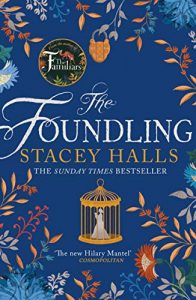
A beautifully crafted, and painstakingly researched novel, this book tells a story of a mother trying to reclaim her stolen child. Set in the 18th Century, it follows two women, each struggling in her own way. Six years after Bess Bright was forced to leave her illegitimate newborn girl at the London’s Foundling Hospital, she comes back to reclaim her. She has carefully saved up the money the hospital demands from returning mothers, only to find that someone has already claimed the baby and stolen her away.
Meanwhile, barely a mile away, in a gloomy townhouse, a young widow raises her child. Convinced by a friend to hire a nursemaid for her daughter, she reluctantly allows a stranger into her house.
As the two begin their uneasy coexistence, the mystery of the missing child begins to unravel, and the two mothers will find themselves and their love tested.
Composite Creatures by Caroline Hardaker
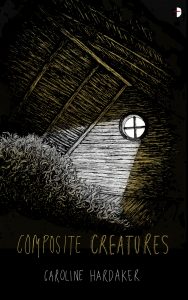
In this haunting, lyrically written novel, we’re transported to the near future, where the world is too full of poison to sustain most life. Humans continue their existence, trying to block off their reality as much as possible, maintaining an odd sense of normalcy until they too succumb to an early death. Only the rich have a way out.
A private medical company, Easton Grove is offering a perfect solution for a hefty fee, a bundle of solutions really, to take home, to keep close… Norah, the protagonist of the novel, is a woman who lets the world carry her where it will, traveling on a wave of inertia, until she comes to the crossroads, which will define who she chooses to become. As she is faced with the creature she must look after, a strange set of new emotions stir within her. The bond she wasn’t quite expecting, linked with the instinct to protect, is deeply unwelcome. Norah does not wish to be tested. She is unprepared. She is unwilling. Yet she’ll be pushed to admit to herself just what this new creature in her care means to her.
This Poison Heart by Kalynn Bayron
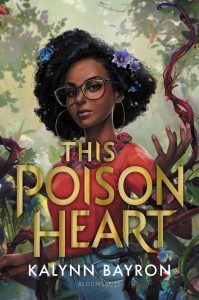
This contemporary YA fantasy novel, and its sequel, This Wicked Fate, follow an adopted young girl, Briseis, who discovers that her strange affinity to plants, and immunity to poisons, is inherited from her ancestor, Medea.
While her story takes her on a journey of self-discovery, her two adoptive mothers refuse to be consigned to the background. They have none of Briseis’ powers or her lofty heritage, but their love for their daughter moves them to acts of great bravery, and their passion for their family is beautiful to read.
The Witch’s Heart by Genevieve Gornichec
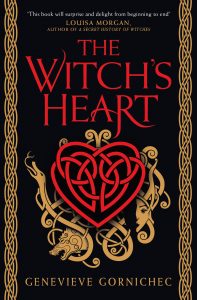
Inspired by Norse mythology, this book tells the unsung story of Angrboda, the mother of monsters. The stories that remain of the old Norse gods were written down by Christian monks, and as such there are some notable gaps in the stories. What is – and isn’t – given much attention, is very much dictated by the scribes’ own worldview and interests… Gornichec searches between the lines of the old stories, looking for characters who were glossed over, or forgotten altogether. In her richly-told story of Angrboda, the giantess mother of monsters, she carefully weaves the story of unconditional love and betrayal.
Angrboda is not only the mate of Loki but the mother of the wolf Fenrir, the Midgard serpent Jörmungandr, and the ruler of the dead Hel. She hides from the gods who both covet her powers and despise her for them. For Angrboda might be the mother of monsters, but she is a mother none-the-less and always willing to fight to keep her family safe. But the gods of Asgard never stopped searching for her. And the loyalty of her mate is ever doubtful.
A Thousand Splendid Suns by Khaled Hosseini
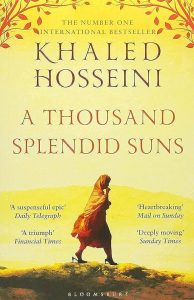
A deeply moving book about mothers and daughters, and the bonds between women. In the midst of a horrific social upheaval in Afghanistan, and the rise of the Taliban regime, two women, Mariam and Laila struggle for survival and dignity. As their lives intersect due to unfortunate circumstances, they form a quasi mother-daughter bond, which is both unexpected, and deeply human.
Orfeia by Joanne Harris
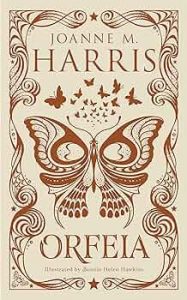
The haunting and lyrical story of a woman striving to bring back her dead daughter. Dreams and reality weave together in this fairytale-inspired story of a mother’s determination where the protagonist Orfeia is asked to sacrifice much in the search for her child. Tragic and hauntingly beautiful both, and reminiscent of Hans Christian Andersen’s The Story of a Mother.
Dial A for Aunties by Jesse Q. Sutanto
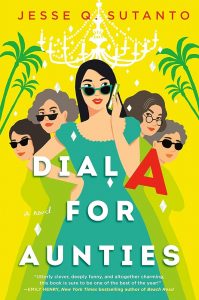
This is the most light-hearted of the books I’ve selected. When Meddy Chan accidentally kills her blind date, she turns to her aunties for help, which they’re willing to offer, dead body or not. It is a charming romp, with a multi-generational family of women who might bicker, meddle and compete, yet are willing to go to great lengths to be there for each other. Whilst considered the norm in much of the world, multi-generational families are still seen as somewhat of a novelty in English-language fiction. Sutanto’s witty prose does justice to the complexities, as well as the absurdities, of a family that never loses sight of what’s truly important.
All of the books I’ve selected show how women do not cease to be individuals the moment they birth a child. All of their strengths, weaknesses, foibles and issues remain, often magnified by the new challenge of motherhood. And this is what I wish to see represented in fiction. Mothers whose agency doesn’t become diluted by the experience of caring for another. Mothers who struggle and those who thrive, the ones who fight, and sometimes fail too. The whole gamut of human emotions is there to be explored.
Gabriela was born and raised in Poland, brought up on a diet of mythologies and fairy tales. She spent her summers exploring the woods, foraging and animal tracking with her family. At 19, Gabriela moved to London to study English Literature and obtained a Masters degree in Literatures of Modernity. She has worked as an assistant editor and as a freelance writer. Gabriela’s short stories have been selected for the Editor’s Choice Review by Bewildering Stories and have been featured on the Ladies of Horror Fiction podcast. She lives in London with her husband and two children.
The Bone Roots is out today from Angry Robot. You can order your copy on Bookshop.org
